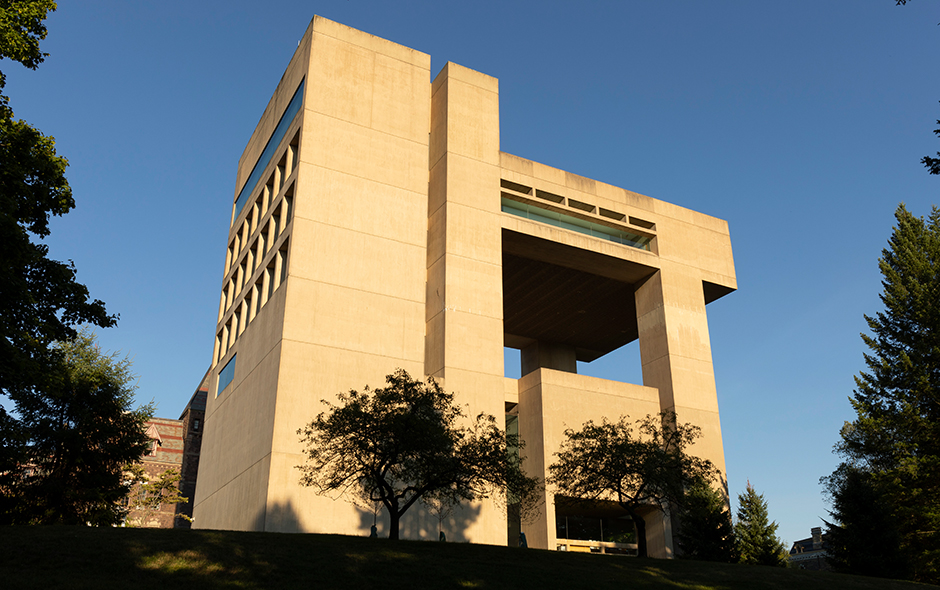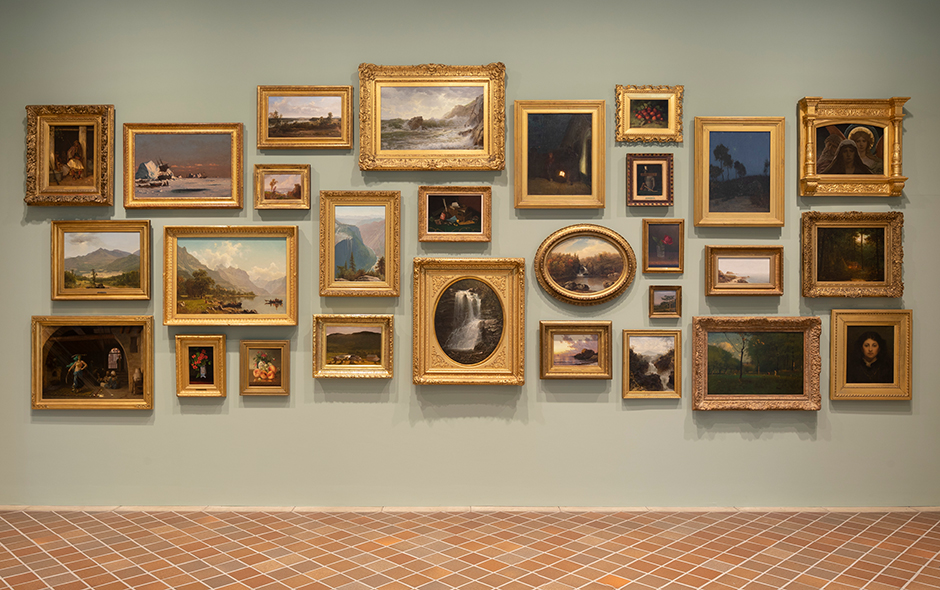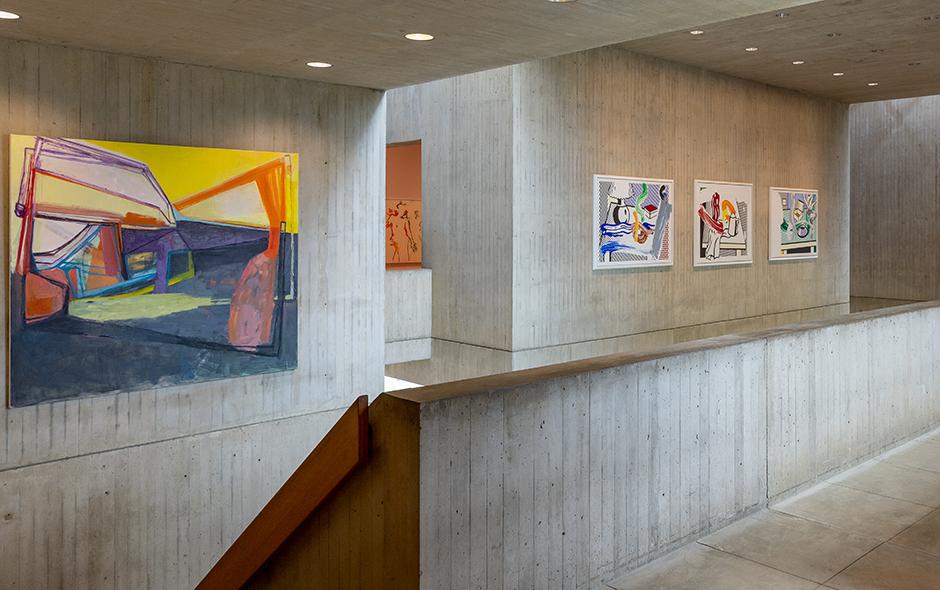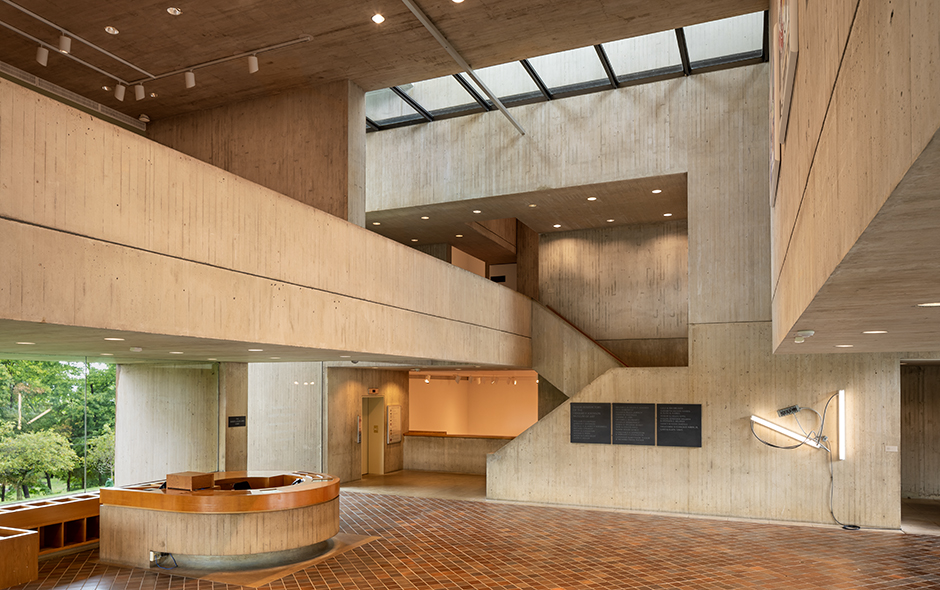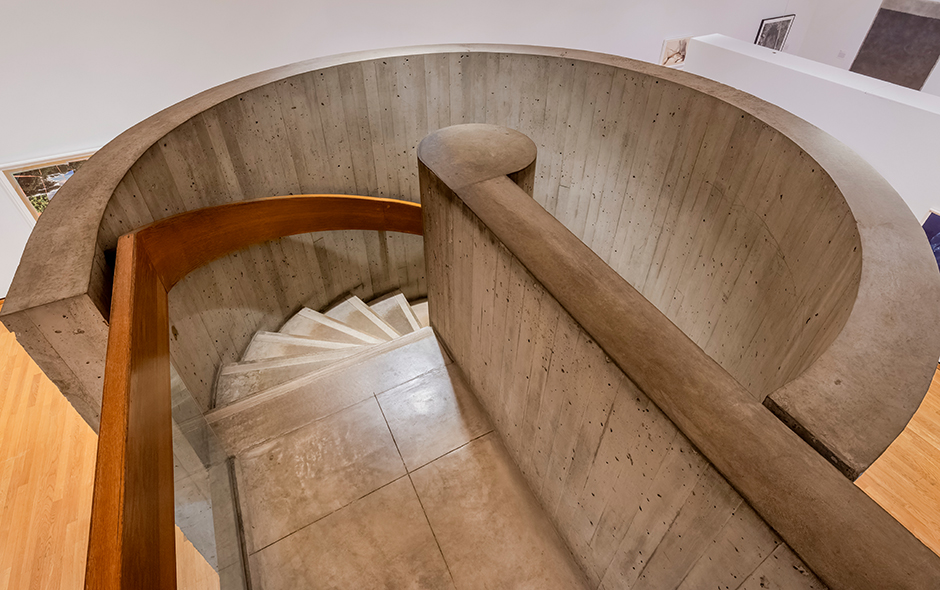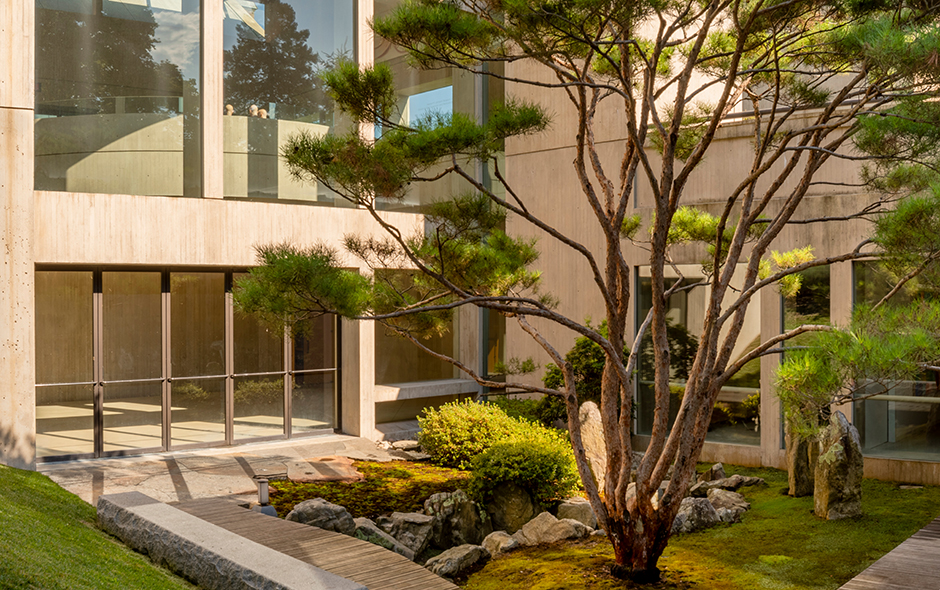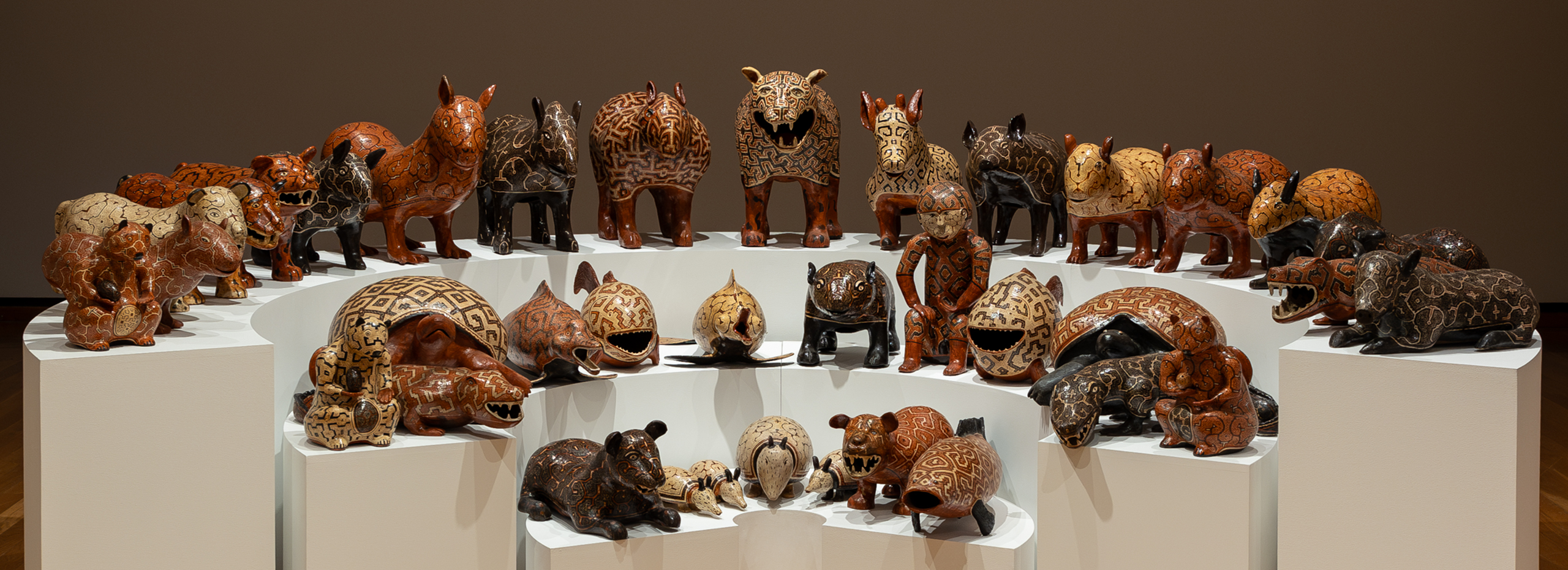
In the Gold Gallery, Floor 2L
Celia Vasquez Yui: El consejo de las madres espíritus de los animales es una colaboración con el Shipibo Conibo Center en Nueva York y se presentó por primera vez en Salon 94 en Nueva York en 2022. En el Johnson Museum su presentación está organizada por Andrea Inselmann, la curadora Gale and Ira Drukier de Arte Moderno y Contemporáneo.
Celia Vasquez Yui: The Council of the Mother Spirits of the Animals is a collaboration with the Shipibo Conibo Center in New York and was first shown at Salon 94 in New York in 2022. At the Johnson Museum, its presentation was organized by Andrea Inselmann, the Gale and Ira Drukier Curator of Modern and Contemporary Art.
In October 2023, Peruvian ceramic artists Celia Vasquez Yui and her daughter Diana Ruiz Vasquez visited Ithaca for a series of programs in conjunction with the exhibition, including a public hands-on workshop at the Museum and this interview by Ananda Cohen-Aponte, associate professor of art history, and Juliana Fagua Arias, PhD student in art history. Their conversation explored the interconnected nature of art making, environmental activism, and struggle toward Indigenous sovereignty by the Shipibo-Konibo people in the Peruvian Amazon.
Closed captioning in English and Spanish is available for this video.
El consejo de las madres espíritus de los animales es una exposición de alrededor de cincuenta esculturas creadas por la artista peruana Celia Vasquez Yui (nacida en 1960), quien trabaja en la tradición cerámica indígena de su pueblo, los Shipibo-Conibo, en la ciudad de Pucallpa en la Amazonía peruana. El proceso de urdido y los patrones laberínticos que utiliza son transmitidos de abuela a madre y de madre a hija. Jaguares, monos, armadillos y tortugas, entre otras especies en peligro de extinción, se disponen en una especie de parlamento de animales defendiendo los derechos de la naturaleza. Vasquez Yui es no sólo artista y activista, sino también curandera, roles que, en su cultura, están estrechamente entrelazados.
Vasquez Yui comenzó a crear junto a su madre, una destacada ceramista descendiente de las culturas del horizonte polícromo, cuyo registro arqueológico en la Amazonía se remonta miles de años. Ahora Celia trabaja junto a su hija, Diana Ruiz Vasquez, en una colaboración intergeneracional que proporciona una dimensión expansiva a la obra, en donde dos cuerpos y dos mentes convergen para completar los diseños de la otra.
La exposición está acompañada por la grabación de una ceremonia especial de ayahuasca ejecutada en la Amazonía peruana por miembros de Asomashk, la asociación de médicos ancestrales shipibo. Los cantos, no destinados al tratamiento de humanos, actúan como interfaz sensorial entre humanos y no humanos, con llamados de aves, trinos, rugidos, siseos, resoplidos y chirridos enfocando la atención en la naturaleza como paciente. “Viajo por tierra y bajo el agua. Vuelo sobre el cielo y las montañas, busco en el lecho del río para identificar tu enfermedad”, canta uno de los curanderos uniendo cuerpos, espíritus, tierras y aguas en una visión del mundo basada en la convivencia, la reciprocidad y el parentesco. Estos valores subrayan la naturaleza interconectada de la creación artística, el activismo medioambiental y la lucha por la soberanía indígena—para más información sobre estas relaciones y prácticas consulte el acuerdo de reciprocidad del Shipibo Conibo Center.
(Translated from the English by Rodrigo Guzman-Serrano, PhD student)
The Council of the Mother Spirits of the Animals is an exhibition of about fifty sculptures by the Peruvian artist Celia Vasquez Yui (born 1960), who works in the Indigenous ceramic traditions of her people, the Shipibo-Konibo, in the Amazonian city of Pucallpa. The coil-built process and mazelike patterns she uses are handed down from grandmother to mother to daughter. Jaguars, monkeys, armadillos, and tortoises, among other endangered species, are arranged in a kind of parliament of the animals asserting the rights of nature. Vasquez Yui is not only an artist and activist but also a healer, roles that are closely intertwined in her culture.
Vasquez Yui began creating alongside her mother, an eminent ceramicist and descendant of the Polychrome horizon cultures, whose archeological record throughout the Amazon dates back thousands of years. Celia now works alongside her daughter, Diana Ruiz Vasquez, in an intergenerational collaboration that adds another expansive dimension to the work, where two bodies and two minds merge to finish each other’s designs.
The exhibition is accompanied by a recording of a special ayahuasca ceremony performed in the Peruvian Amazon by members of Asomashk, the Union of Shipibo Healers. Not intended to treat humans, the chants act as a sensory interface between humans and nonhumans, with birdcalls, chirps, roars, hisses, snorts, and squeaks focusing attention on nature as the patient. “I am traveling on land and underwater. I’m flying over the sky and the mountains, I’m searching the riverbed to identify your sickness,” sings one of the healers, joining bodies, spirits, lands, and waters in a worldview that is about conviviality, reciprocity, and kinship. These values underscore the interconnected nature of art making, environmental activism, and struggle toward Indigenous sovereignty—see the Shipibo Conibo Center’s reciprocity agreement for more about these relationships and practices.
Image: Celia Vasquez Yui (with Diana Ruiz Vasquez), The Council of the Mother Spirits of the Animals, 2023 (installation view), at the Johnson Museum of Art (Photo: David O. Brown)
Celia Vasquez Yui: The Council of the Mother Spirits of the Animals is supported by the Russell ’77 and Diana Hawkins Exhibition Fund, the Hartell-Cattarulla Endowment for Exhibitions, and generous gifts from Ira Drukier ’66 and Gale Drukier and from Richard F. Tucker ’50 and Genevieve M. Tucker.



